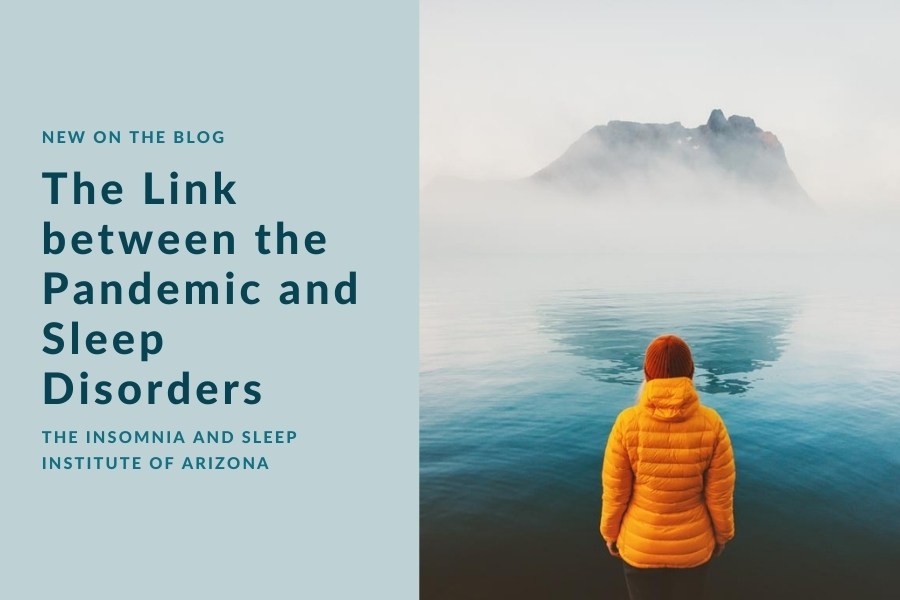Have you experienced a new or worsened sleep disorder in the past 14 months? If so, you aren’t alone. The Insomnia and Sleep Institute of Arizona has undergone a surge in new patients in the past year (plus), with pandemic worry keeping more and more Americans from getting the sleep they deserve. If you’re struggling with sleep quality, treatment is available at the institute with the “Top Doc” in the Phoenix area, as rated by sleep specialist colleagues. We are proud to be the Face of Sleep Medicine in Phoenix, where you will find a sleep institute with unprecedented staffing levels including sleep specialists and a clinical psychologist focused on CBT for insomnia.
We are a sleep clinic driven by outcomes, so every consultation is with a sleep specialist. This ensures a quick and correct diagnosis so proper testing and treatment can follow. Insomnia was a common sleep disorder well before the pandemic, but according to the American Academy of Sleep Medicine (AASM), insomnia diagnoses have more than doubled since COVID-19 arrived in the U.S. A national survey has shown that 60 percent of Americans struggle with what has been dubbed “COVID-related insomnia.” This means the general insomnia rates, which were normally 10 – 30 percent, have skyrocketed to include over half the population.
Sleep Matters
There are plenty of things to worry about for most Americans, whether it’s getting ill, concerns about the economy, job insecurity, or maybe that you’ve been homeschooling for over a year. Overall, stress on a national and global scale has reached record-breaking levels and it’s bound to affect our health—including our sleep. The researchers also found that an increasing number of people are resorting to medications (both over the counter and prescribed), supplements, and other substances such as alcohol consumption to self-soothe. This can be an ineffective strategy at best and a dangerous one at worse.
Studies have also shown that most primary care physicians do not refer to sleep specialists for insomnia and typically prescribe medication even for chronic insomnia. You do not need a referral for a consultation at The Insomnia and Sleep Institute, where cognitive behavior therapy (CBT), a non-drug approach to insomnia treatment, is the gold standard. Medications can be effective in the short term or to create a foundation for non-medication therapy, but are usually not the best approach for longer sleep struggles.
The Truth About Sleep Disorders in the COVID-19 Era
More than half of the respondents in the survey (56 percent) say they have experienced more sleep problems since the pandemic began. Some are surprised to learn that men are more likely to report this, even though women typically report insomnia at a rate double that of men. The majority of people (70 percent) who self-declared this increase are aged 35 – 44. This group is also the most likely to depend on a sleep aid according to researchers.
The fact that this demographic is getting hit the hardest in terms of sleep disturbance is not unusual. These are the people who are working and/or have children at home that need help with online learning. Insomnia can present in a few different ways, but the most common complaint during the COVID-19 pandemic is trouble falling asleep and staying asleep with 57 percent reporting this concern. In total, 67 percent of women said this was the case while just 47 percent of men reported the same. There has also been a surge in people sleeping less, having more troubling dreams, and experiencing lower quality sleep. More than half of people said they have used a medication recently to help them sleep, with men being more dependent on sleep aids than women.
Get Help from a Sleep Specialist
Using medications to treat insomnia is not the best approach or one that is feasible in the long term. Instead, you deserve to work with a sleep specialist who can provide you with a diagnosis and the tools necessary to achieve a healthy amount of sleep. The Insomnia and Sleep Institute is a sleep clinic in Phoenix that focuses exclusively on sleep disorders. If you’ve had trouble in the past year with insomnia, get on the right track today and schedule a consultation with a sleep specialist.
You can contact The Insomnia and Sleep Institute today by completing the online form or calling the office at (480) 745-3547.





